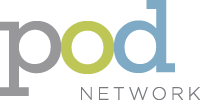Educational development is a growing and vibrant field, defined as:
- “helping colleges and universities function effectively as teaching and learning communities” (Felten, Kalish, Pingree, & Plank, 2007, p. 93)
- actions “aimed at enhancing teaching” (Amundsen & Wilson, 2012, p. 90)
- a “key lever for ensuring institutional quality and supporting institutional change” (Sorcinelli, Austin, Eddy & Beach, 2005, p. xi).
What all of these definitions have in common is the enhancement of the work of colleges and universities, often with a focus on teaching and learning. The POD Network prefers the term “educational development” (instead of, for example, “faculty development”) because, according to Past President Deandra Little (2014), it better “encompasses the breadth of work we do,” including levels (individual, program, and institutional) and key audiences (graduate students, faculty, postdoctoral scholars, administrators, organizations) served.
“Educational development” is the most inclusive term for POD Network members’ work, which encompasses a number of subfields, described below:
Faculty/Graduate Student/Postdoc Development
Faculty, graduate student, and postdoctoral scholar development refers to those programs which focus on the individual instructor or future faculty member. Specialists in this area provide consultation on teaching, including class organization, evaluation of students, in-class teaching methods, active learning strategies, emerging teaching and learning technologies, and all aspects of design and presentation. They also advise instructors on other aspects of teacher/student interaction, such as advising, tutoring, discipline policies and administration.
An additional frequent focus of such programs is the instructor as a scholar and professional. These programs offer assistance in career planning, professional development in scholarly skills such as grant writing, publishing, committee work, administrative work, supervisory skills, and a wide range of other activities expected of faculty. For graduate and professional students, these programs might take the shape of Preparing Future Faculty or Preparing Future Professionals, designed to prepare them for future career directions.
A third area on which these programs focus is the instructor as a person. This focus includes wellness management, interpersonal skills, stress and time management, assertiveness development and a host of other programs that address the individual’s well-being.
While not all faculty and graduate student/postdoc development programs include all these areas, most take a holistic view of faculty work, with the philosophy that assisting individual instructors in being as productive and effective as possible will strengthen the entire institution.
Instructional Development
Instructional Development takes a different approach for the improvement of the institution, with a focus on the course, the curriculum and student learning. In this approach, instructors become members of a design or redesign team, working with instructional design specialists to identify appropriate course structures and teaching strategies to achieve the goals of instruction.
Instructional development programs can also examine how a course fits into the overall departmental and institutional curriculum; they help define instructional goals and methods that will maximize learning; they evaluate course effectiveness in terms of goal achievement; they support faculty in selecting and using teaching and learning technologies; and they produce or evaluate learning materials for use in the course. Many instructional development programs include a media design component.
Many programs have expanded this focus to include training faculty members and teaching assistants to perform these functions themselves. This involves the presentation of workshops on course design, alternative instructional methods, new and effective technological tools or learning management system features, and materials production. This expansion also frequently includes an assessment component that either studies a variety of questions about instructional effectiveness or assists faculty members and graduate students in conducting their own studies of course methods.
The philosophy behind these programs is that members of the institution should work as teams to design the best possible courses with the resources available.
Organizational Development
Organizational Development provides a third perspective on maximizing institutional effectiveness. The focus of these programs is the organizational structure of the institution. The philosophy is that if one can build a structure that will be efficient and effective in supporting faculty and students, the teaching/learning process will thrive.
Many centers are involved in large-scale institutional change efforts, involving high-level college and university priorities, such as grants designed to transform teaching and learning structures and practices. Similar activities include helping academic units plan and enhance their curricula, through processes such as assessment, curriculum mapping, and discussion of learning goals. Do intended outcomes match achieved outcomes? Do curricular plans need to be updated? What is the change process?
Still other programs deal with personnel issues involving faculty. How are faculty evaluated and rewarded? How are they prepared for changes in the institution, including their own retirement? Where do faculty fit into the overall governance structure of the institution? What is the effect of unionization, departmentalization, and professionalization?
A third area of organizational development focuses on developing leadership capacities in faculty and administrators. One activity such programs offer is administrative development for department chairs, deans and other decision makers. The reasoning is that these are the individuals who will be making the policies that affect how courses are taught, how faculty are hired and promoted, and how students are admitted and graduated.
Across all of these emphases—institutional change, personnel, leadership—the key focus of organizational development is a structural lens to improve educational practices.
Sources:
Amunden, C., & Wilson, M. (2012). Are we asking the right questions? A conceptual review of the educational development literature in higher education. Review of Educational Research, 82(1): 90–126.
Felten, P., Kalish, A., Pingree, A., & Plank, K. (2007). Toward a scholarship of teaching and learning in educational development. In D. Robertson & L. Nilson (Eds.), To Improve the Academy: Resources for Faculty, Instructional and Organizational Development, 25 (pp. 93–108). San Francisco, CA: Jossey-Bass.
Little, D. (2014). Reflections on the state of the scholarship of educational development. To Improve the Academy, 33(1): 1–13.
Sorcinelli, M.D., Austin, A.E., Eddy, P.L., & Beach, A.L. (2005). Creating the future of faculty development: Learning from the past, understanding the present. San Francisco: Jossey-Bass.
Revised by POD Network Executive Committee, June 2016

